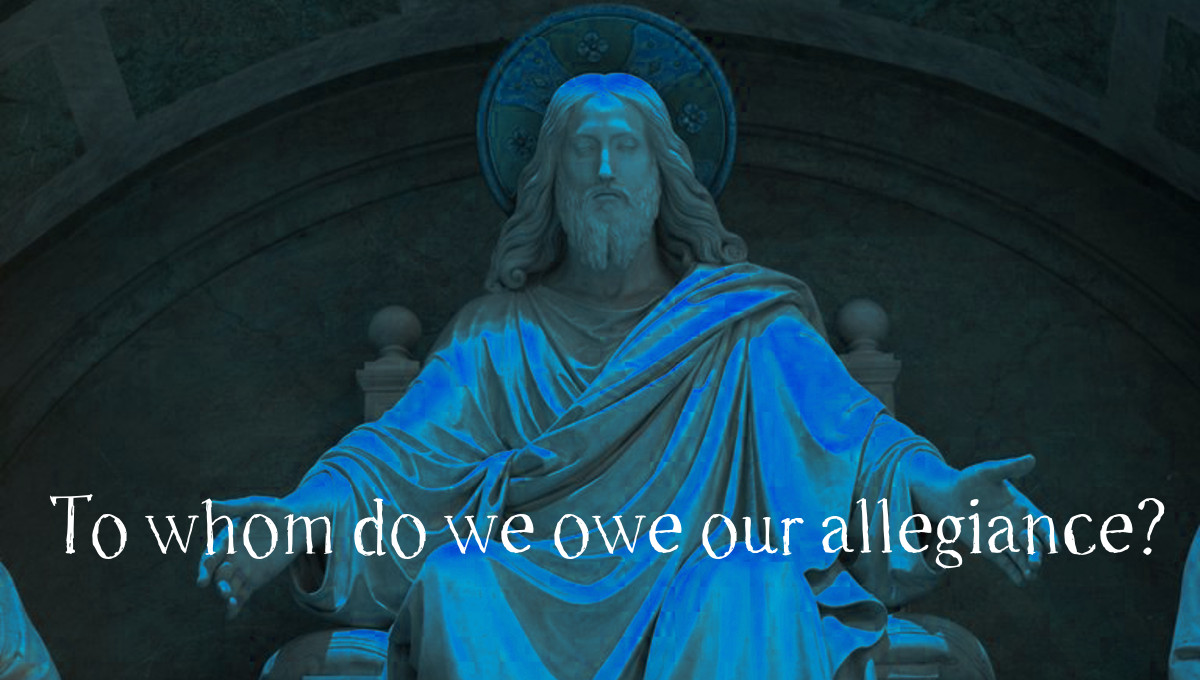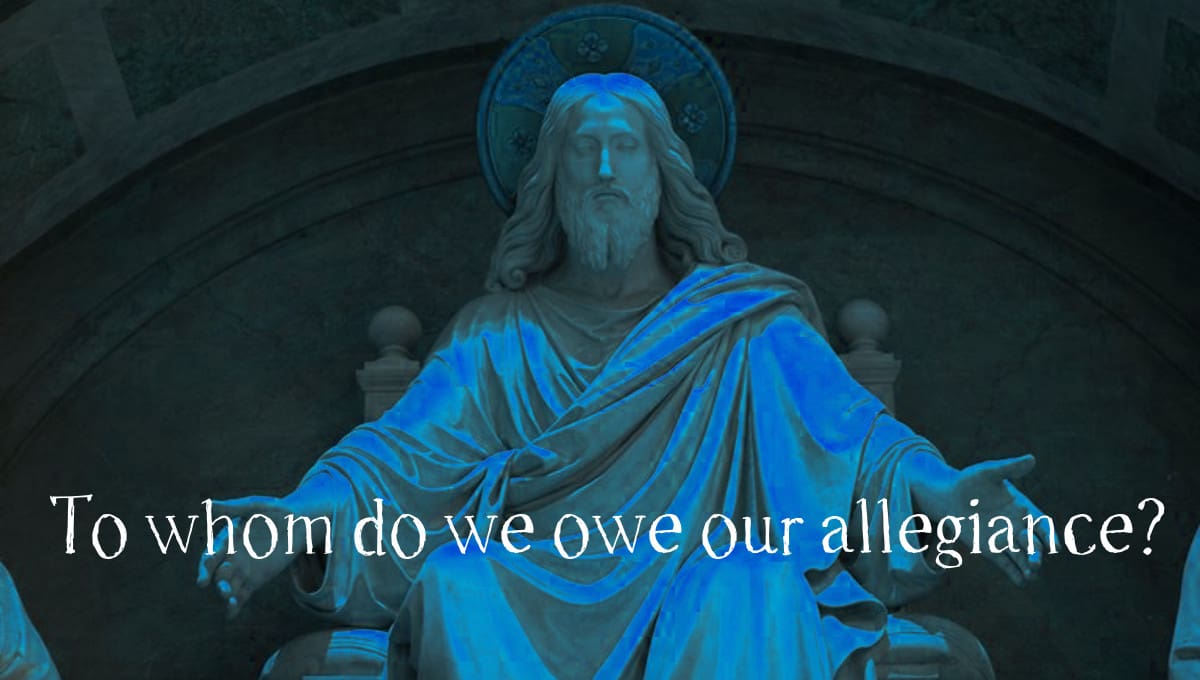Christ the King – To Whom Do You Owe Allegiance?
To Who do we owe allegiance? It is an ever-relevant question, especially today. In the political realm many Christians are wrestling with the issues of religious beliefs and political affiliation. The feast of Christ the King reminds Christians that Christ must reign in our hearts, minds, wills, and bodies (see Quas Primas, 33). How does that happen for a member of the Vincentian Family?

How did Vincent respond to the politics of power?
Fr. Daniel Franklin Pilario, C.M., of the Congregation of the Mission’s Philippine province investigated this in 2008 in an article published online titled, “VINCENT DE PAUL AND THE COURT: Responding to the Politics of Power.”
At one time his country was deeply divided on issues surrounding the political dictator Marcos. He was not so much surprised that the Vincentian community too was divided. What amazed him was that both sides used St. Vincent to support their stand.
“One side rhetorically asks: Was Vincent not friends of those in power? Did he not bridge the gap between the rich and the poor? The rich also are persons. They are also poor – emotionally, morally, and spiritually. Did St. Vincent not call us to serve them too, as he did himself? Those on the other side ask: when we dine with them or ask them to donate to our projects, are we not condoning their injustices? By celebrating Masses in their gatherings, do we not help legitimize this oppressive regime? No one was convinced of the response of the other.”
Today, we find ourselves in a different context. But the substance of the questions remains. How should Vincentians deal with the politics of power? Can we learn anything from what St. Vincent did in his context?
Some, including Abelly, his first biographer, have accused Vincent of of being a willing collaborator. After all Vincent was a man of his times. Like his contemporaries, he also believed that to be faithful to the will of the king is also to obey the will of God.
Yet that response neglects the nuances of Vincent’s responses. Vincent’s responses, says Pilario, ranged from open defiance, oblique resistance, embodied dissent, and, perhaps most significantly, standing in solidarity with the poor.
In the scholarly article referenced above, he reflects on various kinds of power and how Vincent related to those in power and the various ways he used power. It is a challenging read. Here I offer simply the main lines of his presentation of Vincent various responses. Hopefully, it will be food for thought for our contemporary responses.
Open Defiance
“Despite his close affinity with the authorities, Vincent did deliberately oppose government policies and articulated them.”
“This did not please Mazarin. As consequence, Vincent was dismissed from the Council of Conscience.[36]It was the price he paid for his act of open defiance to dominant power.”
Oblique Resistance
“If we use force we could be going against God’s will”
“While official propaganda praised the “Great Confinement” [imprisoning undesirables in “workhouses” for the protection of society] as the ‘greatest charitable enterprise of the century’, Vincent consciously distanced from it not in open defiance but through what I call ‘oblique resistance’ – a tactic available to the weak in the face of so great a power.”
A late 19th-century author described Vincent this way: “We may compare him to that remarkable mechanical invention known as the screw. It works its way through without fret or noise; it does not split or spoil the material, but slowly, peacefully, progressively and steadily bores through wood, stone or even steel, for nothing can hinder its progress.”[44]
Embodied Dissent
“Look at how M. Vincent comes dressed to court” It was common practice at the court to cultivate outward appearances if power.
“If power exists but is not visible in the appearance of the ruler, the people will not believe. They must see in order to believe.”[46]
“With Vincent’s simplicity of life, he is content to come to court in clean but simple attire – or, to use the words of Abelly, in “his good manners which were both simple and humble”.[49]“
Standing in solidarity with the person of the poor.
“These are my burden and my sorrow”
When we go to the poor,” he tells the missionaries, “we should so identify with them that we share their sufferings… We must open our hearts so that they become responsive to the sufferings and miseries of the neighbor.”[59] Such a spirit of compassion has to fill our hearts, our attitudes, our language, and lastly, our actions: “We must help them as much as we can to bring about partial or complete end to their sufferings, for the hand must be directed as much as possible by the heart.”[60]Such a solidarity is not only ‘affective’ but also ‘effective’, to use one of Vincent’s famous distinctions.
Reflection questions
Whether or not one has the time to read the scholarly article and references we can all reflect on the appropriateness of our own choices in specific situations.
- What is my default mode of response to power:
- Go along?
- Directly confront?
- Offer oblique resistance?
- Embody my dissent?
- Stand in solidarity?
- How would I judge which response is the best in a given situation?







A well-thought-out and good articlr. Much food for thought.